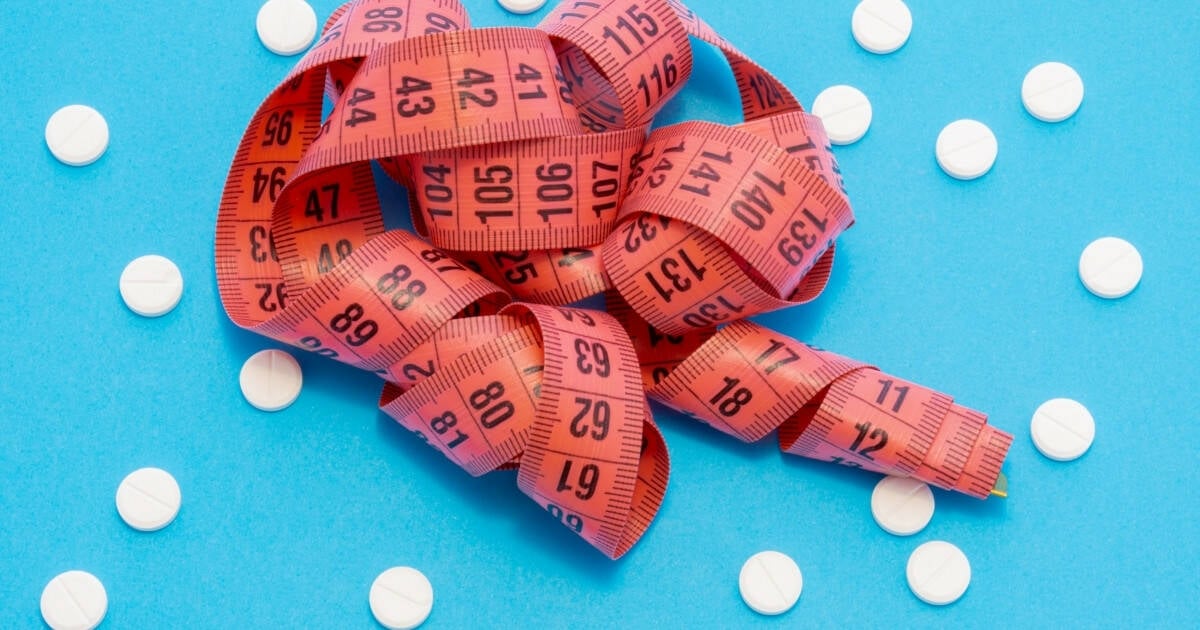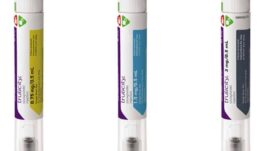As glucagon-like peptide-1 (GLP-1) agonists become more mainstream as weight loss treatments, you may begin to recognize brand names, such as Trulicity.
Trulicity, a once-weekly injection, is a medication used to help manage blood sugar levels in people living with type 2 diabetes.
However, more and more people are being prescribed this medication to aid in weight loss—although it’s not yet approved by the Food and Drug Administration (FDA) for this purpose.
Read on to learn more about Trulicity, the benefits and risks, and determine if it’s the right weight loss method for you.

Table of Contents
- What is Trulicity?
- Can Trulicity help you lose weight?
- How quickly can I lose weight on Trulicity?
- How much weight can you lose with Trulicity?
- What are the side effects of Trulicity?
- Who should not take Trulicity?
- Can Trulicity replace insulin?
- Can I take Trulicity if I don’t have diabetes?
- Is Trulicity right for you? Let’s ask your doctor.
What is Trulicity?
Trulicity is a name-brand medication used to treat type 2 diabetes. In 2014, it was approved by the FDA for the management of blood sugar levels, often along with insulin therapy.
It is an injectable drug taken once weekly and falls under the GLP-1agonist drug class. The active ingredient in Trulicity is dulaglutide.
Trulicity lowers blood sugar levels by attaching to certain receptors on the cells of the pancreas. This activates the pancreas to increase insulin production, thus lowering blood sugars.
Trulicity also prevents blood sugar spikes after meals by stopping the production of glucagon from the liver. This increases insulin sensitivity.
Finally, Trulicity slows digestion. While this may cause some adverse side effects, it can also make you feel fuller for longer.
Similar drugs to Trulicity are medications like Ozempic, Mounjaro, and Victoza, which are growing in popularity due to their ability to help people lose weight.
Can Trulicity help you lose weight?
Technically, yes. GLP-1 agonists, such as Wegovy, are approved specifically for weight loss.
Though Trulicity is not FDA-approved as a weight loss drug, many patients taking Trulicity for diabetes management do lose weight.
Although modest, Trulicity in randomized controlled trials (RCTs) was shown to help the average person lose around 6.6 pounds, which has been proven to be sustained over the course of 6 months.
Another study showed that compared to a placebo, dulaglutide (the active ingredient in Trulicity) helped patients achieve lower blood sugar levels, lower A1C levels, and weight loss.
Trulicity is most effective when combined with a healthy diet, increased physical activity, and as a supplement to any prescribed diabetes medications.
Because Trulicity is not FDA-approved as a weight loss drug, there is no recommended dose to achieve weight loss. However, studies have shown that weight loss was dose-dependent, meaning the more medication people took, the most weight they were able to lose sustainably.
How quickly can I lose weight on Trulicity?
We don’t recommend taking Trulicity as a quick weight loss solution. Sustainable weight loss will happen over time.
Since Trulicity suppresses appetite and improves insulin sensitivity, any weight loss you experience will be gradual, occurring over several months.
Combine Trulicity with a healthy diet and increased exercise to increase weight loss results.
How much weight can you lose with Trulicity?
According to research, Trulicity was found to help patients lose an average of 6.6 pounds and sustained this weight loss for more than 6 months.
The medication is dose-dependent, so on 1 mg, patients usually lose an average of 6.6 pounds. On 3.0 mg, patients lose an average of 8.4 pounds, and at the maximum weekly dose of 4.5 mg, patients lose an average of 10.1 pounds.
However, any weight loss is usually regained after patients stop taking the medication.
What are the side effects of Trulicity?
Trulicity may cause adverse side effects, especially when you first start taking the medication. These side effects may include:
- Nausea
- Vomiting
- Decreased appetite
- Stomach pain and bloating
- Diarrhea
- Fatigue
- Redness and swelling at the injection site
- Low blood sugar, especially if you’re on insulin
Rarely, Trulicity may cause the following:
- Acute pancreatitis
- Severe allergic reaction
- Impaired kidney function
- Medullary thyroid carcinoma (MTC)
You should not take Trulicity if you have a personal or family history of MTC or multiple endocrine neoplasia.
The FDA released a black box warning about Trulicity’s association with an increased risk of thyroid cancer.
Who should not take Trulicity?
Do not take Trulicity if you do not have a prescription for Trulicity. You should not use Trulicity if you are at a maintenance weight or are underweight.
Ideally, you should not take Trulicity as a weight loss treatment if you’re pregnant, breastfeeding, or planning on becoming pregnant.
Trulicity may cause serious (but rare) side effects, including thyroid C-cell tumors, and medullary thyroid carcinoma (MTC).
If you are on insulin, note that Trulicity may increase low blood sugar levels. You may want to start using a continuous glucose monitor (CGM) before starting Trulicity if you struggle with frequent hypoglycemia, and especially if you struggle with hypo unawareness.
Can Trulicity replace insulin?
No. Trulicity is very different from insulin and it is not an insulin replacement.
If you’ve recently been prescribed Trulicity, do not stop taking your other diabetes medications unless directed to by your doctor.
Trulicity lowers blood sugar levels over time, but it does not cause acute low blood sugars in the way that insulin does.
If you normally take insulin you will need to continue to do so. If you’ve been on Trulicity for several months, you may notice that your insulin needs are gradually decreasing but this rarely, if ever, completely takes away the need to take insulin for your diabetes.
If you’re experiencing frequent low blood sugars while taking Trulicity, this most likely means that your insulin sensitivity has increased and you’ll need to decrease your insulin dose. Talk with your doctor about adjusting your medication and/or insulin doses to help avoid frequent hypoglycemic events.
Can I take Trulicity if I don’t have diabetes?
A rule of thumb is that you should never take any medication that hasn’t been prescribed to you. Trulicity is only FDA-approved as a treatment for type 2 diabetes. However, it is increasingly prescribed “off-label”, which means without approval from the FDA.
Trulicity is often prescribed for weight loss in people who have chronic insulin resistance and are having trouble losing or maintaining their weight—this can happen to people living with type 1 diabetes or prediabetes, as well as people who are overweight or obese.
If you do not have diabetes, you should be aware that Trulicity can cause adverse side effects, including low blood sugar levels and low blood pressure, both of which can be fatal if not treated correctly.
If you’re trying to lose weight and do not have diabetes, ask your doctor about FDA-approved weight loss medications that may be a better choice for you.
Is Trulicity right for you? Let’s ask your doctor.
No healthcare solution is one size fits all. Connect with your primary care physician to determine if a Trulicity prescription is the right weight loss method for you.


